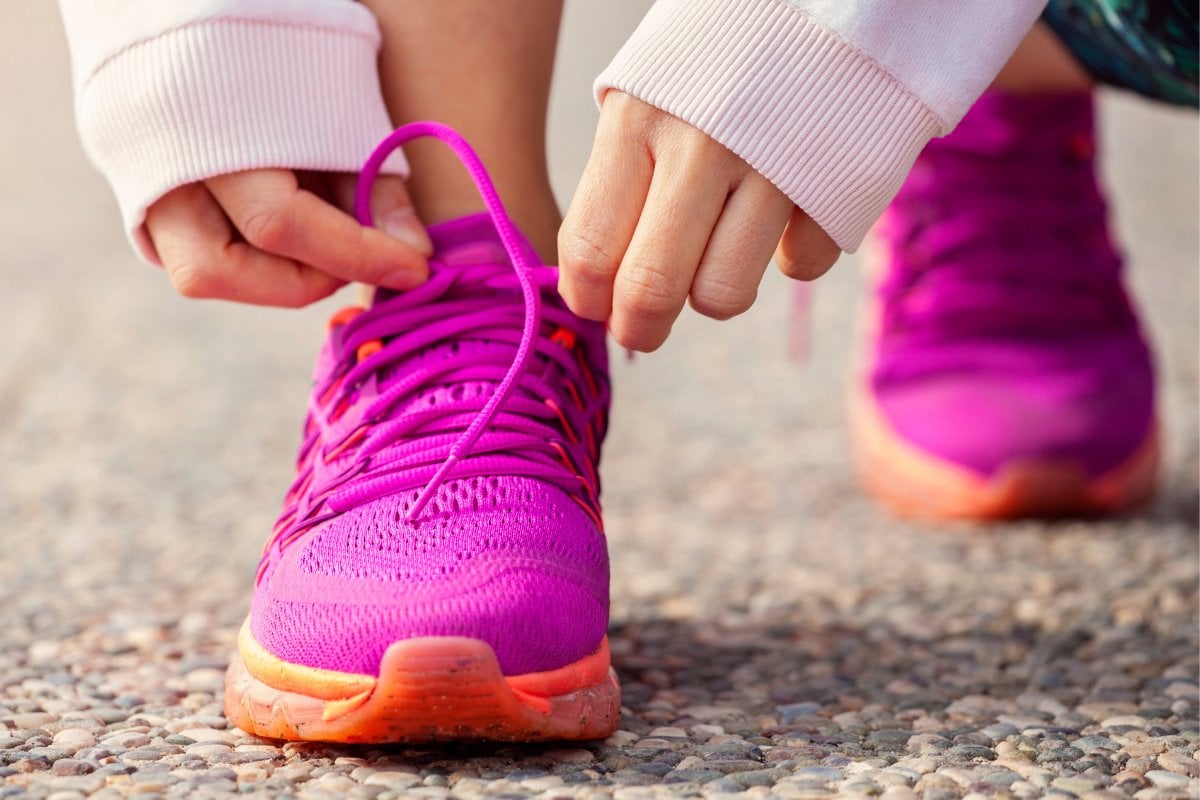
Like so many others, I'm walking (and trying to run) more than ever before.
My morning walk is the highlight of my day and checking my step count has become second nature. But while I've got the new workout gear (an obvious lockdown purchase), I don't own the right pair of shoes.
Side note... these characters would own the pandemic. Post continues after video.
As I recently learned, different types of exercise require different pairs of shoes.
So, to figure out which would be best for walking, running or weight training, I spoke to podiatrist Sarah Sweeney, of Sarah Sweeney Podiatry in Queensland, to understand what I need to know before investing in a new pair of sneakers.
When shopping for new exercise shoes, what are the first things you need to consider?
As Sarah explained, there are a few things you need to keep in mind before buying a new pair of kicks.
First, you need to think about what type of exercise you're doing - whether that's walking, running, or training in a gym. Then look at some podiatrist-approved brands.
"I would only ever exercise in a good quality shoe, specifically made for my type of exercise. The brands I generally stick to are New Balance, Brookes, Asics, Mizuno and potentially Hokka," she said.
